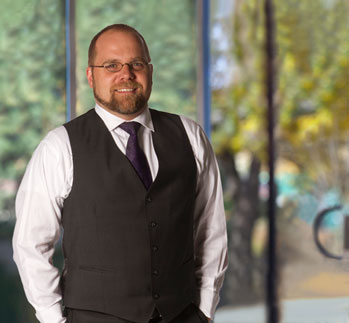What are we going to do with you?

It is unfortunately common for family disputes to arise over the question of how to deal with the remains of a deceased loved one. These disputes can arise due to religious disagreements within a family, disagreements over the status of particular relationships, or by competing ideas of what the deceased would have wanted to be done. Ultimately, the control over who gets to make the decisions is determined by statute and common law.
There is no requirement for people to provide instructions to their loved ones as to what ought to be done with their own remains. Oddly, a person’s remains do not even form part of their estate. It is sometimes open to question, though, as to whether instructions left behind by a deceased person are, or ought to be, binding on those left behind. In other words, does the deceased person have the right to control what happens with their own remains? At common law, the answer appears to be “no”.
The case of Lajhner v. Banoub, [2009] OJ No. 1327, involved the death of a Canadian-Serbian. A dispute arose between the Greek Orthodox parents of the deceased, and his Bosnian-Muslim spouse whom he had married in an unofficial muslim ceremony a short time before his death. The deceased had no will. Both the parents and the spouse claimed the right to determine what to do with the remains. The parents wanted the body cremated and the remains sent back to their native Serbia. The spouse argued that the deceased’s Muslim beliefs demanded that the deceased not be cremated at all. The Court determined that the real question was not whether the deceased’s rights and beliefs ought to be followed, but rather, who had the best claim to authority over the deceased as a potential administrator of his estate. Since the “spouse” was not a legal spouse, and since their relationship (which was fraught with problems) appeared to have been over for some time prior to the deceased’s death, the Court decided that the deceased’s parents had a better claim for authority – irrespective of what the deceased’s own view of the matter might have been. When considering the rights of the deceased to control the destiny of his remains, the court said this:
“There is no legal right in a corpse. Rather than rights, there are only obligations. This is an obligation that the law places on the estate administrator… Even in circumstances where religious beliefs prohibit cremation, such religious law has no bearing on a hearing of this nature. “
In other words, the right to determine what to do with the remains is vested in the administrator of the estate. The deceased’s own opinions on the matter were irrelevant.
In British Columbia, the authority to make decisions is codified in section 5 of our Cremation, Interment and Funeral Services Act, which provides that the right to control the disposition of remains devolves on these people, in descending order of priority:
1. The executor or administrator of the estate;
2. Spouse of the deceased;
3. Adult children of the deceased (oldest first);
4. Adult grandchildren of the deceased (oldest first);
5. The deceased’s guardian;
6. The deceased’s parents;
7. Adult siblings of the deceased;
8. Adult nephews or nieces;
9. Adult next-of-kin;
10. Government appointed trustees; and
11. Any other adult person with a personal or kinship relationship with the deceased.
However, in British Columbia at least, the deceased does maintain some influence over the destiny of their own remains. Despite that they do not have any specific right to control what happens to them, under section 6 of the same Act, the person who is in charge of the remains is bound to follow the wishes of the deceased, provided those wishes were set out in writing in a will or a funeral services contract, and provided that those instructions are otherwise lawful and would not be “unreasonable or impracticable or cause hardship”.
In other words, your executor will have to listen to your wishes, but will not be bound to follow any elaborate and expensive instructions to turn your ashes into diamonds or shoot them into space. And you have no right to demand that they do.
Andrew Powell practices a wide range of civil litigation with a focus on business or commercial disputes, including breach of contract, lease and land use issues, corporate disputes including liquidations and shareholder issues, and realization and enforcement. Andrew also practices estate litigation, including wills variation claims.

